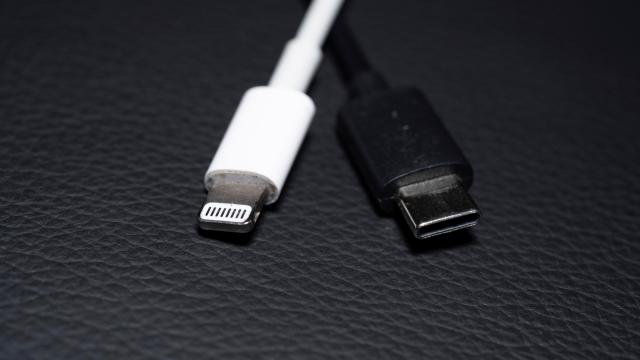European Union lawmakers have reached a provisional agreement that will require companies to make USB-C the standard charging port for devices sold in the region, in yet another example of European regulators facing off against big tech in the name of consumers.
After more than a decade of trying to mandate a universal charging port for devices — typical speed for European lawmakers — the European Parliament on Tuesday announced that it reached a deal that would amend the Radio Equipment Directive and force manufacturers to adopt the USB-C as the common charging port for a variety of devices, such as smartphones, tablets, and cameras. The law would deal a major blow to Apple, which ships iPhones with proprietary Lightning charging ports. Android devices are more frequently compatible with standard charging ports.
In a press release, the European Parliament said that all devices covered by the directive would need to have a USB-C port by autumn of 2024. Besides those mentioned above, affected devices include e-readers, earbuds, headphones, headsets, handheld video game consoles, and portable speakers that are charged using a wired cable.
“Today we have made the common charger a reality in Europe!” Parliament rapporteur Alex Agius Saliba said in a statement.
Lawmakers who championed the common charger argued it would make products in the EU more sustainable, reduce e-waste, and make life easier for customers in the region, according to the release. The European Parliament claims that disposed of and unused chargers generate 11,000 tons of e-waste per year; it also stated that a common charger would help consumers save up to €250 million ($US266 ($369) million) each year.
“European consumers were frustrated long with multiple chargers piling up with every new device. Now they will be able to use a single charger for all their portable electronics,” Saliba said.
Officials said that the EU’s new requirements will only apply to products released after the law is applied, or roughly 24 months after it’s published in the EU Official Journal. Although a deal was reached today, the European Parliament and Council will formally approve the agreement after the summer recess.
The one charger requirement also applies to laptops. In that case, however, manufacturers would have 40 months to adapt their devices to the new common charger standard. This is due to the fact that it’s harder to create a common charger for laptops with different charging requirements.
Though Apple has stubbornly insisted on using its proprietary Lightning connector, reports say the company has begun testing replacing Lightning with USB-C. EU officials insisted that they weren’t singling out Apple at a press conference Tuesday, the Verge reports.
“The rule applies to all and sundry. It’s not adopted against anybody,” Thierry Breton, commissioner of the EU’s internal market, said,. “We’re working for the consumers, not the companies, and we have to give these companies rules; rules that are clear in order to enter the internal market.”
Gizmodo reached out to Apple for comment on Tuesday morning but did not receive a response by the time of publication.
